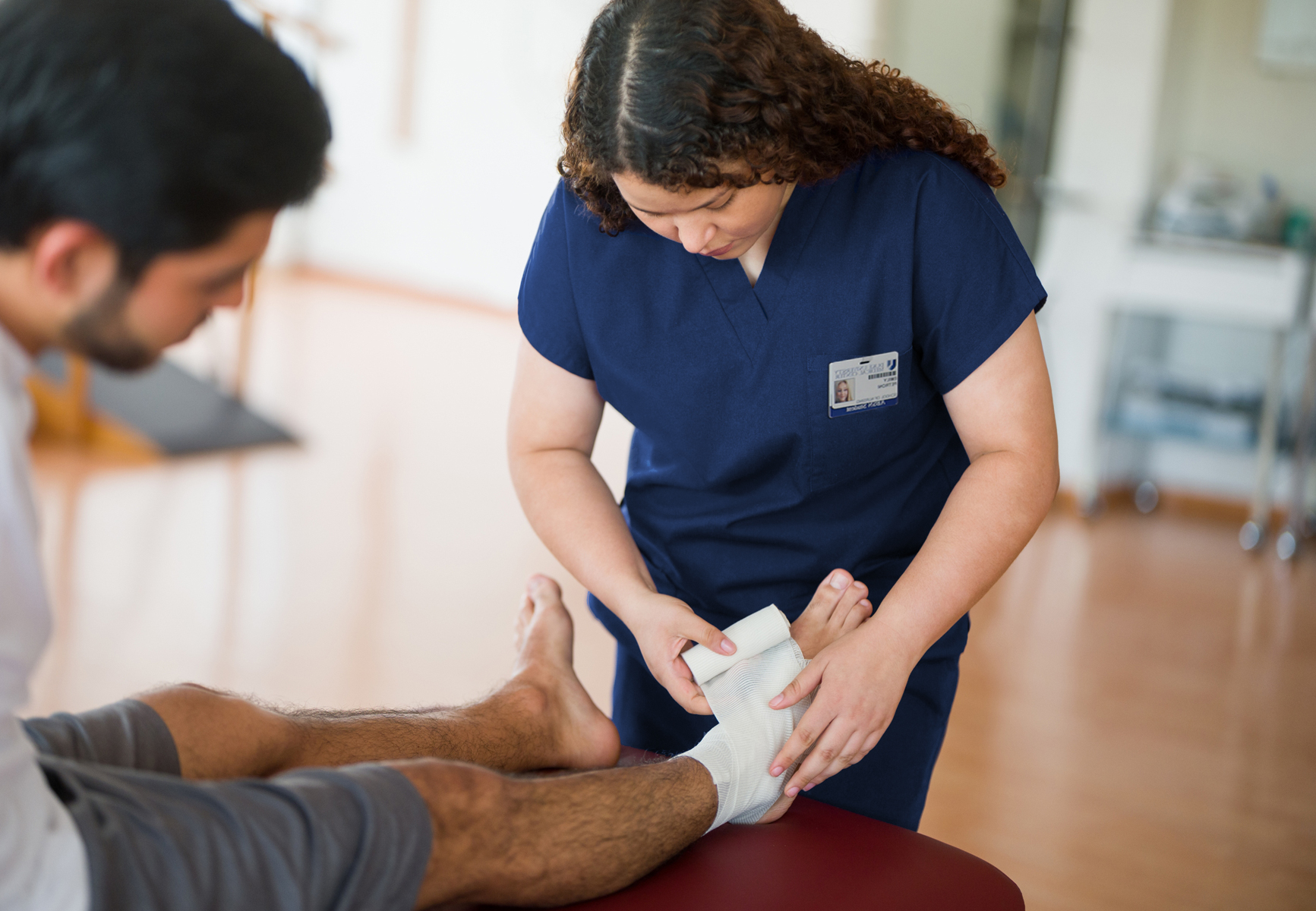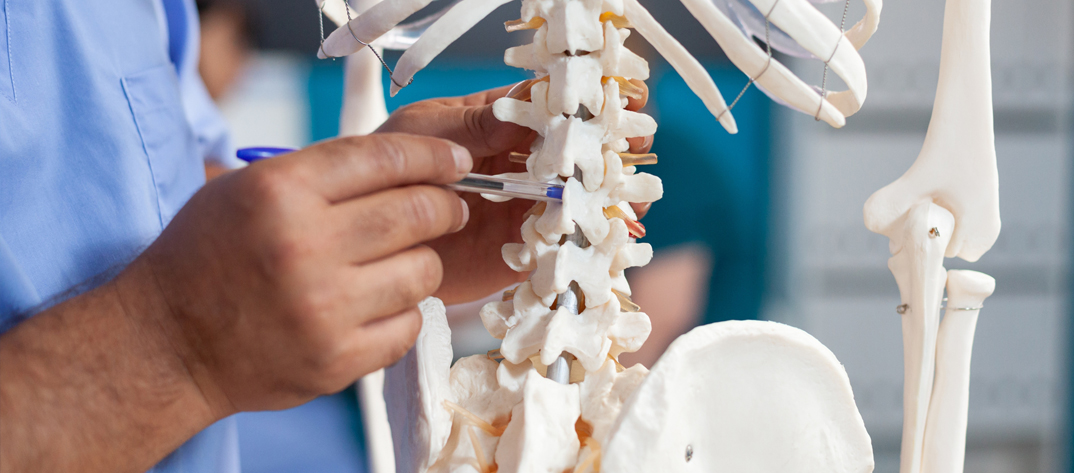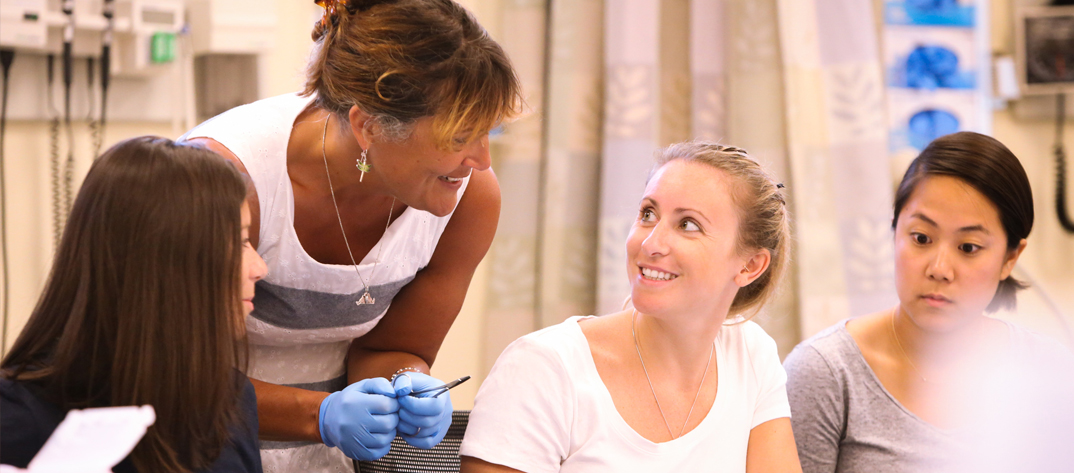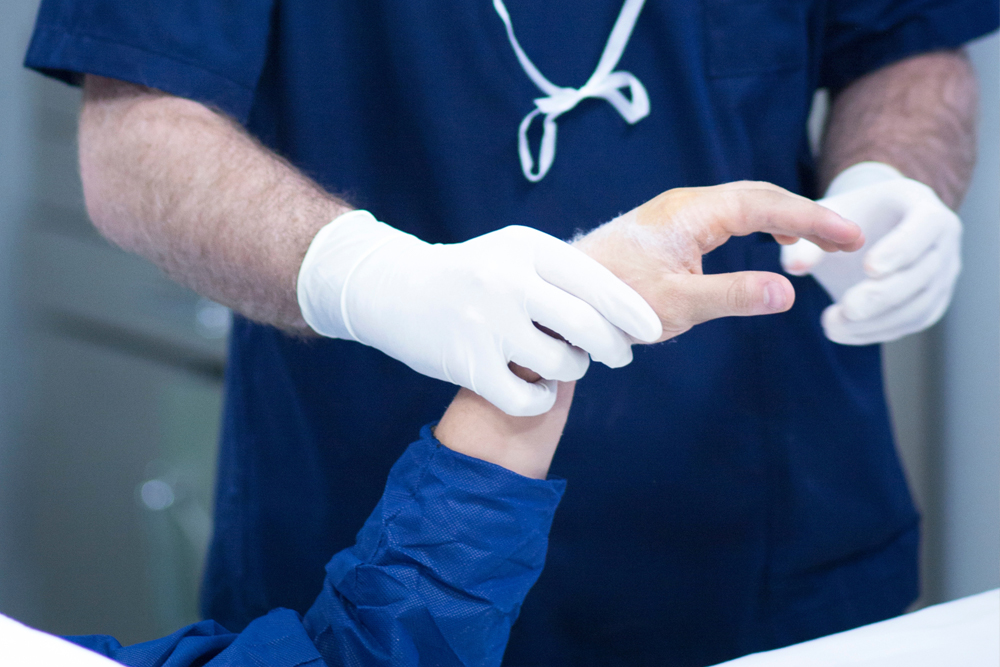Many nurse practitioners find themselves in specialty roles, where on-the-job learning can often lead to knowledge gaps.
Duke University School of Nursing’s orthopedics specialty program bridges those gaps by providing you with a strong foundation in musculoskeletal care.
Led by internationally recognized, board-certified orthopedic nurse practitioner faculty, our orthopedic nursing program caters to both NP students and licensed NPs seeking to enhance their skills. Our orthopedics specialty equips you to deliver expert care to patients with musculoskeletal conditions in various settings, including urgent care, military medicine, emergency care, occupational health and physical medicine. Our orthopedic nursing program offers a flexible format, combining online lectures with intensive, hands-on labs on campus. Under the guidance of experienced faculty, you’ll master advanced orthopedic techniques like joint injections, casting and suturing, preparing you for a successful career as an orthopedic nurse practitioner.
For those new to orthopedics, you’ll participate in a final 168-hour clinical rotation, allowing you to practice your skills in real-world settings. Our orthopedics specialty courses can also serve as didactic or clinical electives for APRN majors.
Orthopedics Nursing Specialty Highlights
As the only program of its kind in the world, our orthopedic nurse practitioner program offers the flexibility and training you need to manage musculoskeletal conditions across diverse clinical settings.
Whether you’re a new NP student, a DNP student or a licensed NP seeking to expand your skill set, our program empowers you with the knowledge and confidence to make a meaningful difference in your life and in the lives of others. Here’s what sets our orthopedic nursing specialty apart:
Renowned faculty:
Learn from internationally recognized, board-certified orthopedic nurse practitioner faculty. Gain insights from instructors with extensive clinical experience and a deep understanding of the current orthopedic landscape. Our faculty are actively involved in research and industry advancements, ensuring you receive the most up-to-date knowledge.
Comprehensive coursework:
Our orthopedic nursing specialty features a carefully crafted blend of didactic and clinical training. The curriculum covers a wide range of topics, from musculoskeletal anatomy and physical exam techniques to advanced orthopedic skills like injections, casting and splinting. Diverse learning activities throughout the program keep you engaged and reinforce core concepts.
Hands-on learning:
Hone your skills as an orthopedic nurse practitioner through mostly online study complemented by in-person learning experiences. Participate in two intensive, face-to-face skills labs on campus, mastering advanced techniques under experienced mentorship. For those new to orthopedics, a 168-hour clinical rotation allows you to translate theory into practice.
Flexible format:
Our convenient, distance-based lecture format lets you fit your studies into your busy schedule. Online lectures combined with intensive hands-on learning provide a well-rounded educational experience.
Orthopedics Specialty Courses
Duke’s orthopedic nurse practitioner program encompasses essential topics, including injections, casting, splinting and fracture management, to provide you with a solid foundation in musculoskeletal care. You’ll also explore specialized areas such as oncology and infectious diseases. The orthopedics specialty culminates in a 168-hour clinical rotation in which you’ll gain valuable hands-on experience working alongside experienced orthopedic specialists.
The three courses you’ll take as you earn your orthopedics nursing specialty include:
- NUR 821: Advanced Practice Nursing: Musculoskeletal Specialty I (Spring only)
- NUR 823: Advanced Practice Nursing: Musculoskeletal Specialty II (Summer only)
- NUR 825: Advanced Practice Nursing: Musculoskeletal Specialty Synthesis (Fall only)
Learn More About the Orthopedics Nurse Practitioner Specialty
Enrollment Options
Current students interested in adding this specialty to your academic plan must complete the Specialty Add or Delete form. This form will automatically route for approvals from your student advisor and the Specialty Director.
Nurse practitioners with an MSN degree or higher from a regionally accredited institution and nurse practitioner students from other regionally accredited colleges or universities interested in earning a certificate in this specialty should follow the instructions for the Specialty Certificate application. Enrollment decisions are made by the lead faculty of the specialty based on space availability.
Note: The orthopedic nurse practitioner program is spring start only.
Specialty Director
Michael Zychowicz
DNP, ANP, ONP, FAAN, FAANP, FNAON
Dr. Zychowicz is a Clinical Professor of Nursing. Since 2009, he has held several leadership positions within the school. Dr. Zychowicz is currently Co-Director for the Duke-Durham VA post-graduate primary care NP residency. He also leads the graduate level Veterans Healthcare Specialty and the Orthopedic NP Specialty Program.
Learn more about Michael Zychowicz: Scholars@Duke
Q&A With Lead Faculty Michael Zychowicz
As I went through nurse practitioner school, I never planned to practice in orthopedics. However, after graduation, I was offered an orthopedic practice position that I could not refuse. After I began my journey, I quickly fell in love with orthopedic practice. I have enjoyed the ability to fix patients’ problems, whether in the operating room or the outpatient office.
For me, orthopedic practice just seemed to click. The mechanical nature and pathophysiology of most orthopedic conditions make sense to me. The emerging biological and surgical technologies within the world of orthopedics are extremely exciting.
Duke’s orthopedic nurse practitioner specialty is the only educational program of its kind at any university in the U.S. There are two or three postgraduate orthopedic fellowships for nurse practitioners. However, they only accept a small number of nurse practitioners for full-time employment/training. Unlike our program, people can take graduate courses around their full-time employment or add to their graduate school program.
Our orthopedics specialty program is open to nurse practitioner students at Duke or any other college, Doctor of Nursing Practice (DNP) students, and nurse practitioners already licensed and practicing. This is an ideal program for nurse practitioner students aspiring to hold a future practice in orthopedics or those nurse practitioners already in orthopedic practice.
More broadly, since patients with musculoskeletal conditions are frequently evaluated and managed in non-orthopedic settings (e.g., primary care, urgent care, emergency rooms, occupational health, etc.), this is a fabulous program for all nurse practitioners.
DNP and MSN students should consider the orthopedics specialty courses to fill any elective requirements of their program of study. Additionally, DNP students may use the courses as an underpinning for a DNP scholarly project.
An excellent candidate is anyone interested in learning about musculoskeletal care.
The education obtained during this course of study will benefit the nurse practitioner student by giving them foundational knowledge for managing patients with musculoskeletal conditions in any practice setting. Musculoskeletal conditions are among the most frequent reasons for a visit to various practice settings, including primary care, urgent care, the emergency room and occupational health. For new nurse practitioners to have this knowledge upon graduation would be a competitive advantage for them when competing for a new position and a significant patient care advantage when they start their new practice.
The practicing nurse practitioner in musculoskeletal care is typically burdened with learning about orthopedics through on-the-job training. The average nurse practitioner is exposed to 10 hours of orthopedic content throughout their nurse practitioner program. This educational program will fill in the knowledge gaps that practicing nurse practitioners have from learning on the job. In addition, some nurse practitioners only practice within a subspecialty of orthopedics (e.g., hand surgery) and have little knowledge of or exposure to general orthopedics.
Lastly, this specialty prepares the nurse practitioner for the Orthopedic Nurse Practitioner Board certification. The curriculum has been built around much of the core clinical knowledge needed to prepare for the board examination.






